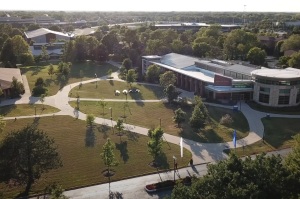Pope Francis’ 'creation groaning' letter: Biblically and scientifically bankrupt
In a letter marking the World Day of Prayer for the Care of Creation, Pope Francis laments the destruction of nature.

“Our constant demand for growth and an endless cycle of production and consumption are exhausting the natural world,” he says. “Forests are leached, topsoil erodes, fields fail, deserts advance, seas acidify and storms intensify. Creation is groaning!”
But Francis thinks COVID-19 and the associated economic lockdowns are restoring nature: “Already we can see how the Earth can recover if we allow it to rest: the air becomes cleaner, the waters clearer, and animals have returned to many places from where they had previously disappeared.”
Sadly, as with the famous — or infamous — Laudato Si’ in 2015, this Papal letter is filled with errors.
It blames population growth and economic development for destroying nature. But didn’t God command humans to populate and control the earth?
“Be fruitful and multiply and fill the earth and subdue it,” God told Adam and Eve in Genesis 1:28. “Behold, I have given you every plant yielding seed that is on the face of all the earth, and every tree with seed in its fruit. You shall have them for food,” He said in Genesis 1:29.
Do people consume resources? Yes. But we don’t just consume. We also produce. The long-term price trend (adjusted for inflation) for all extractive resources — mineral, plant, and animal — is downward. That shows that we make resources faster than we consume them.
Still, the pope claims population growth and economic production make creation groan. The phrase “creation is groaning” comes from Romans 8:20–22:
“For the creation was subjected to futility, not willingly, but because of him who subjected it, in hope that the creation itself will be set free from its bondage to corruption and obtain the freedom of the glory of the children of God. For we know that the whole creation has been groaning together in the pains of childbirth until now.”
The verses teach that the world groans because of Adams sin and God’s curse.
Creation groaned in Paul’s day, when total human population was around 300 million — about 1/25th of today’s. It groaned long before humans made significant use of oil, coal, and natural gas. It has groaned from the day Adam and Eve sinned — when global population was 2, and those 2 had never used a drop of oil, a lump of coal, or a cubic foot of gas.
The world groans in anticipation of redemption and restoration. Christ accomplished redemption on the cross. Restoration will occur not when the world reaches “net-zero carbon emissions,” but when Christ returns.
Contrary to the pope’s assumptions, ecosystems are thriving. For example, in Europe, forest and woodland area increased by 90,000 square kilometers between 1990 and 2015. In India, where 1.3 billion people live, forest cover increased by 3 percent in the past decade.
Not just ecosystems, but also animals are thriving. Contrary to claims that they were headed for extinction, polar bear numbers have increased steadily in the past two decades, and tigers in India have doubled in population between 2006 and 2018, while India’s cities and industries expanded rapidly.
Yes, there are endangered species. But empirical evidence suggests that far fewer are endangered than population biologists’ models project. Meanwhile, we’ve learned to protect them.
Pope Francis laments that “topsoil [is] eroding and deserts [are] expanding.”
Yes, improper soil management occurs in some places. But with modern farming practices, most agricultural land is actually improving. Record-breaking crop yields meet the nutritional demands of a growing world. Food production outpaces population growth.
This pattern will continue wherever economic development enables farmers to afford better techniques. Sadly, the pope’s letter calls for policies that will slow that development.
Contrary to the pope’s claim, none of these positive changes resulted from the COVID-19 economic lockdowns.
The worldwide economic collapse will harm billions for years to come. Yet, the pope writes, “the current pandemic has led us to rediscover simpler and sustainable lifestyles.”
A simpler lifestyle without a job and the means to feed a family? It may be simple, but it’s not healthy! The pope should visit poor rural households in India and Africa, where people with “simpler lifestyles” struggle to survive.
Creation care does not mean imperiling the lives of billions by halting economic activity. It means stewarding creation to benefit mankind, while making sure nature is not abused through pollution and exhaustion.
Pope Francis’s claims stand in stark contrast to well-established scientific evidence. His attempt to link creation’s groaning to man’s rightful use of resources twists Biblical teaching.
Vijay Jayaraj (M.Sc., Environmental Science, University of East Anglia, England), is a Research Contributor for the Cornwall Alliance for the Stewardship of Creation.




























